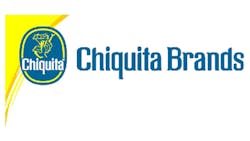Chiquita Executives Must Face Claims Over Colombian Torture
Executives at Chiquita Brands International Inc., the banana label owner that pleaded guilty in 2007 to making payments to Colombian paramilitary groups, were ordered to face U.S. lawsuits claiming they played a role in the torture or killings of thousands of Colombians.
Relatives of victims can pursue their claims under the Torture Victim Protection Act, a federal judge in West Palm Beach, Florida, ruled. The families claim Chiquita paid $1.7 million to the United Self Defense Forces of Colombia, or AUC, to quell labor unrest and prevent leftist sympathizers from infiltrating banana-plantation unions.
Chiquita was fined $25 million by the U.S. after pleading guilty in March 2007 to engaging in transactions with terrorists by paying Colombian militias from 1997 to 2004. A federal appeals court dismissed some of the claims in suits against the company in 2014, saying they didn’t fall within U.S. jurisdiction. The victims are still pursuing some claims against the company under Colombian law in U.S. court in West Palm Beach.
The victims also pursued claims against nine current and former directors, officers and employees, who asked U.S. District Judge Kenneth Marra to dismiss the case. He agreed to toss out claims against two former executives, Steven Warshaw and Keith Lindner, while saying the complaint offered a “reasonable inference” that the others approved the company’s support of the AUC.
Cutting Costs
“This support was given in order to reduce the company’s operating costs in the production of bananas, knowing that violent deaths of thousands of civilians in banana-growing regions of Colombia would be at least a collateral by-product of its support, if not an intended result,” Marra wrote in on ruling on June 1, citing the claims.
While allowing the case to proceed under the TVPA, Marra dismissed claims under the Alien Tort Statute, a U.S. law that lets non-U.S. citizens sue American companies in federal court over alleged abuses abroad. The Supreme Court ruled in 2013 that the law doesn’t apply to conduct occurring in countries where the claims don’t “touch and concern” the U.S.
About the Author
Bloomberg
Licensed content from Bloomberg, copyright 2016.
